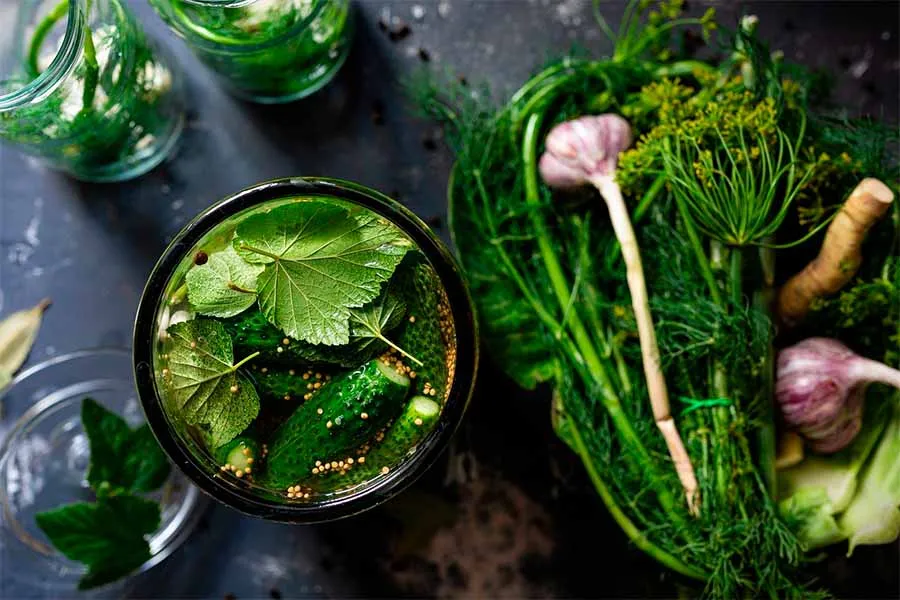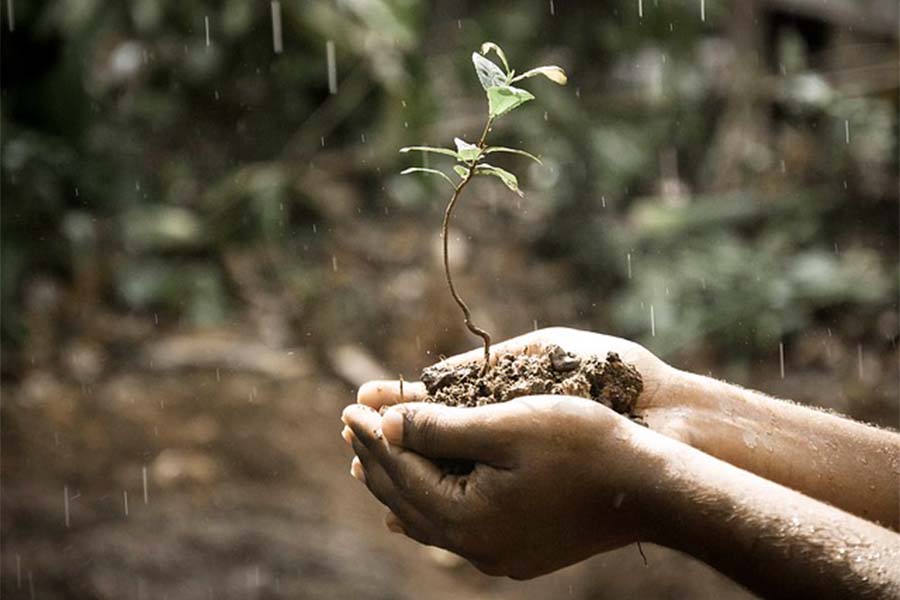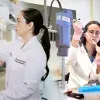Fourth semester Biotechnology engineering students Camila Jiménez and Lucía López, and Dr. Ana Laura Torres, a professor at Tecnológico de Monterrey’s State of Mexico campus, are working on the research and development of a biopesticide to tackle agricultural issues and offer a future alternative to antibiotics.
“Our research seeks to confirm whether the antimicrobial properties of garlic, mango, and eucalyptus are the result of the Snakin gene in their DNA sequences.
“If that’s the case, we want to understand to what extent these genes are expressed, in which particular tissue, and how their antimicrobial and fungicidal activity acts against various pathogens. That would allow us to exploit their properties as agricultural products and combat antibiotic resistance,” shares Dr. Ana Laura.
This research is based on the characterization of the Snakin-1 gene expression in Allium Sativum, Mangifera Indica, and Eucalyptus Globulus.

Due to their antimicrobial activity, mango, garlic, and eucalyptus are excellent candidates for obtaining Snakin-1, explains Ana Laura.
“Our aim is to produce peptides from garlic, mango, and eucalyptus to evaluate their antimicrobial and fungicidal activity against species that cause problems for Mexican agriculture.”
Proposal wins them 10,000 dollars in Bayer challenge
With this research, the students and professor participated at the end of last year in the BAYER Grants4Ag contest to strengthen innovation capabilities in all areas of agriculture.
In this contest, champions were chosen out of more than 600 proposals from almost 40 countries, with the Tec’s State of Mexico campus team proposal being one of the 24 selected by the Bayer Crop Science team.
This resulted in them receiving financial support of 10,000 dollars to make their project a reality.
Our aim is to produce peptides from garlic, mango, and eucalyptus.
What’s more, as part of the prize, the researchers get to meet once or twice a month with company personnel, to receive advice from different business areas and enrich the project.
“We receive support via video calls with our contact at Bayer. They do networking for us within Bayer with the chemistry, biology, physics, and agriculture areas, and share information with us to strengthen our project.
“It’s a great opportunity to spend time with people from all over the world. For us, as the youngest to get that scholarship and as female engineering students, it’s a good future prospect,” shared Lucía.

How did the idea come about?
In an interview, the students share that they joined this line of research at the end of 2019, when Dr. Ana Laura invited them to take part.
“We both come from PrepaTec. We took Professor Ana Laura’s elective and topic courses, and when we had to choose a degree course, she told us about the lines of research, competitions such as iGEM, conferences, and other events we could participate in.
“This line of research began when we were in our first semester. At the end of it, we had an interview to partner with Dr. Ana Laura and join this project,” said Lucía.
Professor Ana Laura Torres already had experience with garlic in the laboratory. However, when the students joined the line of research, they decided to search for further plants containing these proteins, and that’s how they’ve managed to get this far.

“We’re a team and the three of us are very united and patient, and the only obstacle that the pandemic has presented during this investigation is not being able to go to the laboratory to conduct experimental research.
“With the arrival of the pandemic, we carried out all the non-experimental research that we could. We took part in conferences and afterwards, we worked with a view to returning to campus,” explained Camila.
This project was also presented in December last year during Tecnológico de Monterrey’s 8th International Conference on Educational Innovation (CIIE).
“In May 2020, we began working on the project more formally. We took part in the conference and at the same time, we submitted a proposal to the Bayer call on agricultural challenges and the impact of pesticides.
“The project was presented to Bayer headquarters in the United States. It was an international call, and we were notified at the beginning of December 2020 that we’d won,” said Lucía proudly.
Experimental activities
As of last Monday, the research group began work in the laboratory to do experimental activities and make progress on the investigation.
“Over these days, we’re going to produce the peptides that we want in order to test their antimicrobial activity,
“Afterwards, we’ll evaluate their ability to inhibit growth of different fungi and bacteria, as well as expression levels of these peptides in different plant tissues (fruit, flowers, leaves, and stems),” explained Ana Laura.
All of this will be done in line with guidelines from the authorities, our Conscientious Return Protocol, and on a voluntary basis.
“The idea of this investigation is to be able to create a product and market it. This could be a biopesticide for killing pests and plant diseases, as long as they’re caused by viruses, bacteria, and fungi,” concluded Dr. Ana Laura Torres.
YOU’LL DEFINITELY WANT TO READ THIS TOO:





